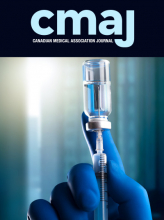The recently published Canadian guideline on alcohol use disorder (AUD) advances the evidence-based management of AUD in Canada.1 A novel addition is a strong recommendation that selective serotonin reuptake inhibitors (SSRIs) should not be prescribed for the treatment of concurrent anxiety or mood disorders in the context of AUD, which warrants an exploration of the nuance behind this guidance.
The complete AUD guideline provides an expanded rationale, stating that recommendation 13 stems from “the lack of high-quality evidence supporting the effectiveness of SSRIs for those with concurrent AUD and depression, a potentially higher risk of adverse events including worsening drinking outcomes, and research demonstrating a rapid reduction of depressive symptoms following a period of abstinence from alcohol use.”2 We agree that prescribers should pause before starting SSRIs in the context of AUD with comorbid anxiety or mood disorders. Similar recommendations have been made by the Canadian Psychiatric Association, which discourages prescribing of antidepressants as first-line treatment in this group,3 as well as the Canadian Network for Mood and Anxiety Treatments task force, although the latter cite data suggesting that sertraline has shown benefit when combined with naltrexone.4
In reviewing the cited evidence,1 however, the risk of worsening drinking outcomes is inconsistent, and the cited randomized controlled trials have substantial limitations that prevent definitive conclusions. For instance, a study involving patients with AUD showed that those prescribed citalopram had increased alcohol consumption than those taking placebo, but had a small sample size, with only 22% of patients meeting criteria for a depressive disorder. 5 A trial of trazodone (not an SSRI) for patients with AUD and sleep disturbances but not anxiety or depression showed worse drinking outcomes among those on trazodone than those on placebo but excluded people taking naltrexone or acamprosate.6 Finally, a small sertraline trial reported worse drinking outcomes among patients with early-onset AUD but improved outcomes among those with late-onset AUD, although findings were limited by high attrition.7 The 2 systematic reviews referenced in the guideline were also inconclusive. Grant and colleagues8 reported increased remission from alcohol use among patients with co-occurring AUD and depression treated with SSRIs, albeit with low confidence and increased rates of adverse events. Agabio and colleagues9 found moderate-quality evidence that antidepressants increased abstinence and reduced heavy drinking among patients with AUD and depression.
Wood and colleagues1 appropriately caution that their recommendation “does not address severe psychiatric conditions” and that, among patients who “demonstrated benefit from SSRI therapy, continued use of the medication could be considered with close monitoring of clinical response as well as unintended effects.”1 This statement is an important caveat and reflects the complex decision-making required in a heterogeneous population, incorporating considerations such as difficulty attaining abstinence in the face of ongoing psychiatric symptoms, refractory symptoms despite abstinence, and past success with pharmacotherapy. If an SSRI is ultimately started, vigilance is required in monitoring for benefit and potential adverse effects.
Footnotes
Competing interests: Julius Elefante receives funding from the US National Institute on Drug Abuse ( NIDA) Grant (no. R25-DA037756) as part of the NIDA-funded research training fellowship offered in partnership with the BC Centre on Substance Use, St. Paul’s Hospital, and the University of British Columbia. No other competing interests were declared.
This is an Open Access article distributed in accordance with the terms of the Creative Commons Attribution (CC BY-NC-ND 4.0) licence, which permits use, distribution and reproduction in any medium, provided that the original publication is properly cited, the use is noncommercial (i.e., research or educational use), and no modifications or adaptations are made. See: https://creativecommons.org/licenses/by-nc-nd/4.0/











